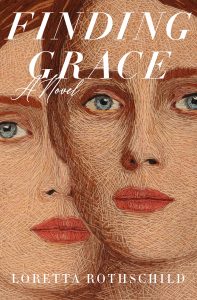
In The Age of Magical Overthinking: Notes on Modern Irrationality, Amanda Montell continues her exploration of language, culture, and psychology, this time turning her focus inward to examine how our minds cope with an increasingly chaotic world. Following the success of Cultish and Wordslut, Montell blends sharp cultural criticism with personal storytelling to illuminate the cognitive biases that quietly shape our beliefs, emotions, and behaviors in the digital age.
“Magical thinking,” Montell explains, is our brain’s attempt to create order and meaning out of uncertainty. It’s what drives people to believe that positive thoughts can cure illness, that loyalty can transform a toxic relationship, or that a viral manifestation video might change their fate. Once a natural coping mechanism, Montell argues that this kind of thinking has been amplified to extremes by social media, celebrity culture, and our information-overloaded era. The result is what she calls “magical overthinking,” where our instincts to find patterns and purpose in chaos become self-defeating illusions.
Across eleven essays, Montell unpacks familiar biases such as the Halo Effect, Sunk Cost Fallacy, Zero-Sum Bias, and Confirmation Bias, among others. But she doesn’t just define them in abstract academic terms. Instead, she connects each to vivid, often funny examples drawn from her own life and pop culture. Whether analyzing our worship of celebrities like Taylor Swift in “Are You Our Mother, Taylor Swift?” or confessing her own missteps in relationships and consumerism, Montell makes complex psychological concepts accessible and deeply relatable.
As reviewer Meike notes, Montell’s brilliance lies not in groundbreaking research but in her ability to make us see ourselves in her reflections. She manages to teach without lecturing, using humor and empathy to remind us that we’re all a little irrational sometimes. Her writing style is warm, conversational, and tinged with self-awareness. She admits to being as susceptible to magical thinking as anyone else, which makes her insights feel more like an intimate chat than a critique.
Jenna, a longtime reader of Montell’s work, describes her as “the professor you wish you had,” someone who turns complicated social science into an engaging discussion. She’s right. Montell’s voice feels like that of a trusted mentor or friend, guiding readers through the biases that affect how we think, consume media, and see ourselves. She doesn’t position herself above her audience, but right beside us, acknowledging her own contradictions and vulnerabilities.
Meanwhile, Mizuki Giffin praises The Age of Magical Overthinking for its sharp relevance in a post-pandemic, hyper-online world. From the way we idolize influencers to the illusions of self-improvement we chase through curated digital identities, Montell’s analysis captures the modern struggle to find meaning in a world saturated with noise. Her tone remains compassionate even as she challenges readers to face uncomfortable truths about why we cling to irrational beliefs.
What ultimately makes this book special is Montell’s message of forgiveness. She doesn’t shame us for our biases or delusions; instead, she reminds us that these mental shortcuts are part of being human. Our overthinking may be irrational, but it’s also evidence of our desire to find hope and agency amid uncertainty.
The Age of Magical Overthinking is not just smart and timely it’s also deeply comforting. Montell manages to hold up a mirror to our messy human minds and say, “It’s okay. You’re not crazy; you’re just trying to make sense of the world.” For readers who loved Cultish or who crave intelligent, witty cultural commentary with a touch of heart, this is a must-read.
👉 Get your copy of The Age of Magical Overthinking: Notes on Modern Irrationality here: https://amzn.to/42ududC


